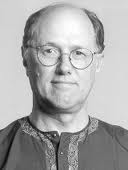The Internet, Hate Speech and Higher Education
by George Wolfe
Back in the 1970s, I picked up a newspaper at a makeshift street-corner newsstand. The newspaper looked rather official, although I soon realized it was not published by the mainstream media. This paper was an underground white supremist forum spewing anti-Semitic and racist rhetoric from right out of the hate-filled, 1930s Nazi playbook.
I was shocked at the propaganda I was reading, but I soon realized that this was a self-published paper, distributed by a fledgling racist group that had minimal funds. In addition, the paper had very limited distribution and influence outside this street-corner location. Our First Amendment guarantees of free speech and freedom of the press allowed for its publication, but I had little concern that its views would prevail in the minds of a well-educated American public.
Today however, our world has drastically changed. With widespread access to the internet, it is now possible to disseminate extremist propaganda worldwide at virtually no cost. Both personal and organizational webpages, as well as social media platforms, are being used to spread neo-Nazi “white nationalist” material that is rooted in a distorted view of culture and of history. Simply stated, history in a totalitarian nation is viewed much like advertising: if you tell a lie enough times, people will eventually buy into it as truth. Only an educated and informed public can tell the difference.
Most of the shootings at synagogues, mosques, churches, Sikh temples, schools, nightclubs, theaters and other social gathering places have been carried out by lone gunmen who were radicalized by material promoted on the internet. Hate crime statistics reported by the FBI show that, in the category race/ethnicity alone, there has been a steady rise in the number of individual hate crimes since 2015, with the sharpest increase of 642 occurring in 2017.
What steps can we take in our country to combat racist rhetoric on the internet?
First and foremost, there must be the underlying foundation of a multicultural, liberal arts education at the high school and college level. It is not enough for students to have multicultural education and history courses in high school. Students need history and multicultural classes in greater depth in the university curriculum.
Recently I performed with pianist Galit Gertsenzon at a Holocaust Remembrance event at the Hasten Hebrew Academy in Indianapolis, Indiana. Our concert featured compositions by Jewish composers murdered in the Holocaust. Never before had I performed at a venue where there were armed guards. This event coincided with the re-opening of a children’s Holocaust Museum. Such facilities around the world are dedicated to documenting the Nazi Holocaust to counter the claims put forth by Holocaust deniers.
I must commend Michael Hicks who in his April 14, 2019 column, “Sending more Hoosier Kids to College,” (The Star Press, Muncie Indiana) takes a stand against authors who minimize and even dismiss the positive economic impact of higher education. He is also critical of the popular political trend to spend tax dollars on professional and vocational programs (i.e., workforce training). Hicks backs up his arguments with economic data and succinctly states it well when he writes, “A good liberal arts education is worth a lot more than a weak professional degree.”
Rightwing authors and politicians erode our inclusive, multicultural democracy by undermining liberal arts curricula and courses that develop a student’s historically informed, moral, innovative and transferable thinking skills. If such a politicized approach to undermining education continues, it is frightening to think that what happened in Nazi Germany could happen again on American soil.
George Wolfe is Professor Emeritus and former Director of the Ball State University Center for Peace and Conflict Studies. He was the 2018 Green Party candidate for Secretary of State in Indiana, is a trained mediator, and is the author of The Spiritual Power of Nonviolence: Interfaith Understanding for a Future Without War.



